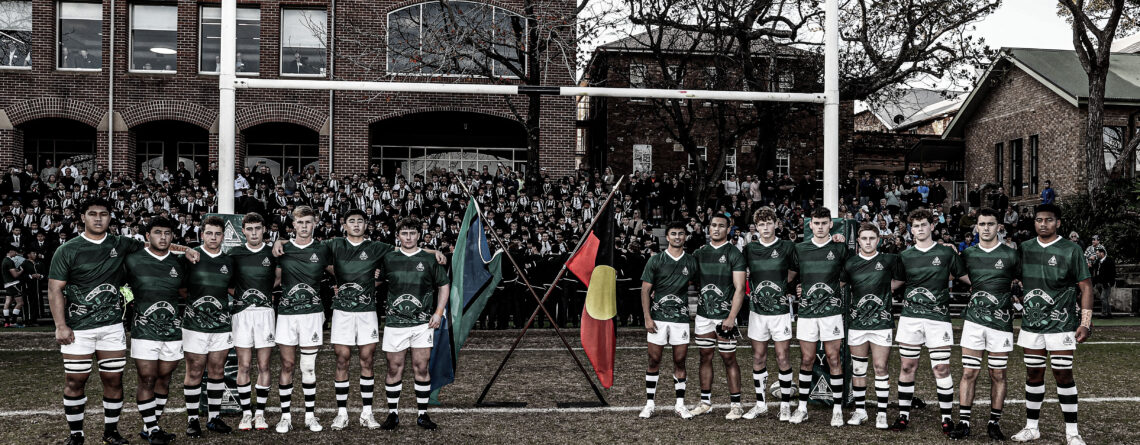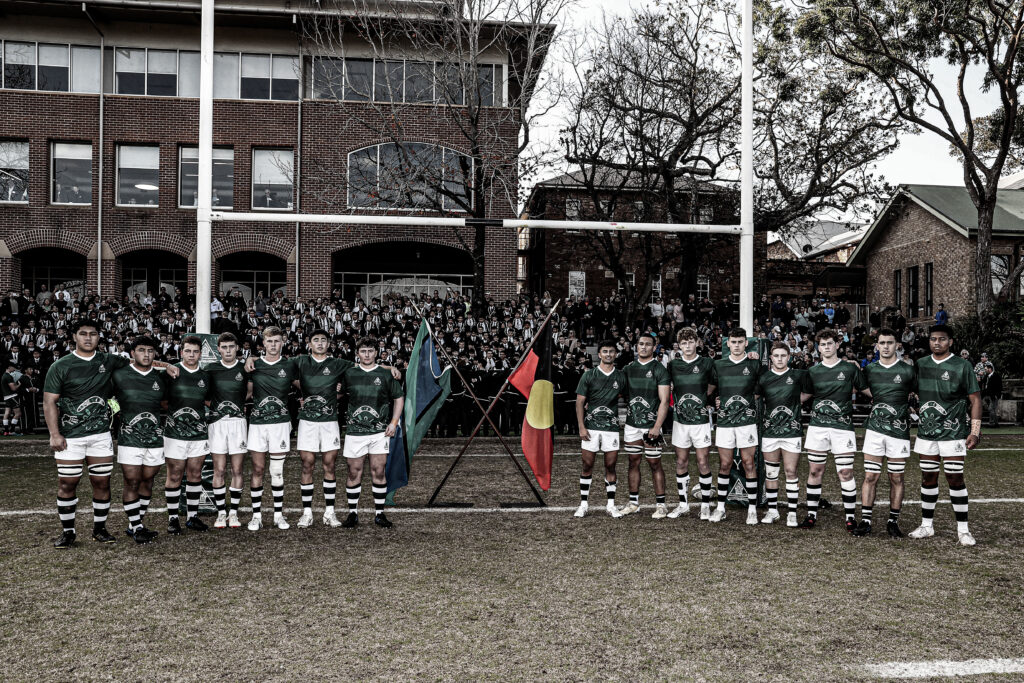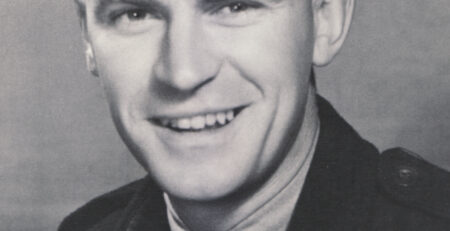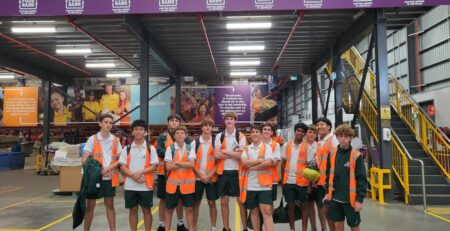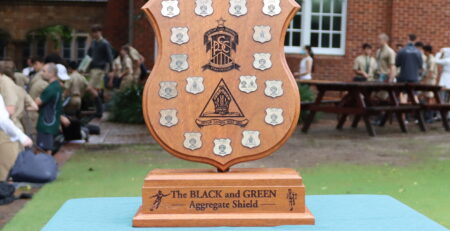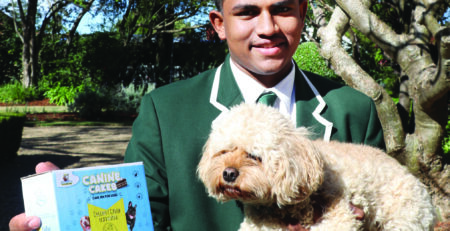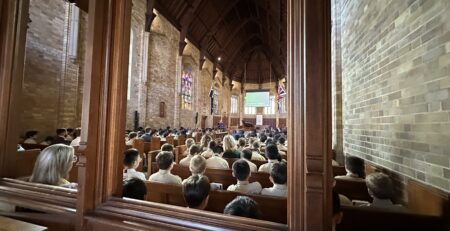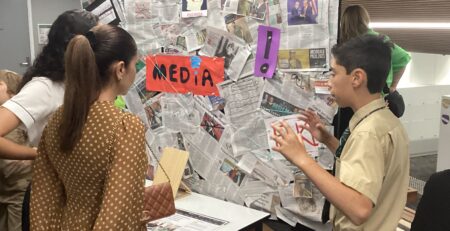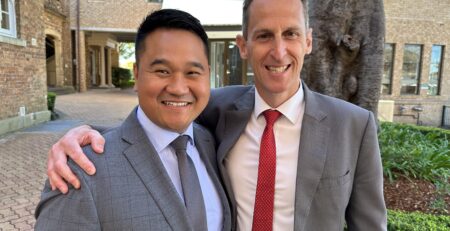Spotlighting discussions on the Yes vote | An educational imperative
As part of Reconciliation Week, Headmaster Tim Bowden read the full Uluru Statement from the Heart at a quad assembly.
“Most of you will not vote in the referendum,” he told students.
“But I want you to know I will vote Yes.
“Listening to a voice which has been ignored for so long is a step in reconciliation.”
He said indigenous Australians had asked for three things – a voice to parliament, historical truth telling, and acknowledgement that indigenous sovereignty over the land had never been ceded.
“The land we stand on is the traditional land of another people, the Wangal people. Before we were here, they were here. We recognise their culture and all they bring to our national story.”
He said they had suffered “systemic disadvantage”, and that story needed to be told “as part of our nation’s story”.
He urged all Australians to work towards a “more just, equitable and reconciled nation”.
Mr Bowden’s sentiments were echoed by Deputy Headmaster – Summer Hill, Brad Barr, who said he felt proud to work at Trinity when he heard the Headmaster’s words, and that he also intended to vote Yes.
“Whilst I think that politics ought generally remain beyond the remit of schools, I do think that schools have a responsibility to be front and centre on issues of social justice because of the responsibility we have for teaching young people to be, in our case, good men.”
Mr Barr said he was “deeply troubled” by Wiradjuri man Stan Grant’s resignation as the host of ABC TV current affairs programme Q+A as a result of what he described as a media campaign of misrepresentation, vilification and hate following his remarks in a discussion about the coronation of King Charles III.
Mr Grant had said he would not have experienced this level of abuse had he been a white man.
“It is not that long ago that Mr Grant was a visitor to Trinity for a Books@Breakfast event, and he struck me as erudite, urbane, reasonable, and thoughtful. This recent furore reminded me of the importance of hearing our First Peoples share their experience and perspective.”
Year 12 student and Bundjalung man Michael King (12Ta) said in a Reconciliation Week address that indigenous people had “cared for the land we stand” on for over 60,000 years.
He gave a rundown of the history of reconciliation, noting some 300,000 people had walked across Sydney Harbour Bridge in 2001 to show their support.
“Now National Reconciliation Week is celebrated in workplaces, schools and early learning services, community organisations and groups, and by individuals Australia-wide.”
Mr Barr said the start and finish dates of Reconciliation Week commemorated two key events – the successful 1967 Referendum which acknowledged Aboriginal and Torres Strait Islander Peoples as citizens for the first time since Federation, and the 1992 High Court Mabo decision overturning the principle of terra nullius.
“For the benefit of generations in the future we must act today if we desire a more just, equitable and reconciled country for all of our citizens,” he said.
Reconciliation Week was also marked by Trinity’s sporting teams wearing their specially designed reconciliation jerseys and uniforms, and delivering recognition of country addresses before each firsts match.

